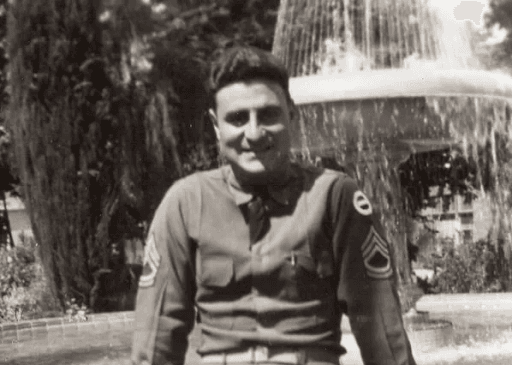‘I’m Here’: Normandy Veterans Deploy for Last Major D-Day Anniversary, Giving Us One More Glimpse of Glory
How Captain Peter Jacullo of New Jersey, defying German guns, dodged getting sent to the rear to nurse his wounds.

The last veterans of World War II’s D-Day invasion will tomorrow deploy to Normandy, France, for the 80th anniversary. Frail, wheelchair bound, but wreathed in gratitude and glory, they are mustering for what could be our last chance to capture their stories and carry them forward.
Five years ago, I interviewed a veteran of Normandy, Captain Peter Jacullo, for his 100th birthday. At the kitchen table of the house that he’d built at Emerson, New Jersey, he described sitting in England as the first wave went ashore.
“This is ridiculous.” Jacullo thought. “I want to get into the war. I don’t want to sit around here drinking beer.” He jumped on the first ship available, which turned out to be hauling black gunpowder. “If the Germans hit that,” he was told, “the whole beach will be gone.” He chuckled to me and said, “Well, you can’t jump off and go home.”
On June 10, D-Day+5, Jacullo’s ship landed at the foot of Pointe du Hoc, where President Reagan spoke on the 40th anniversary in 1984. The young captain — who died in October at 104 — went down the ladder, grabbed a pack, and “ran crisscross to Fox Red,” the eastern sector of Omaha Beach, as hot German metal filled the air.
Jacullo reached an astonished American GI who asked how he’d gotten there. Jacullo pointed down and said, “Feet. I ran.” The GI admonished him for taking the risk. The area hadn’t been cleared of mines. “I’m here,” Jacullo said, ready to fight. “That’s what counts: I’m here.”
The Americans and their allies — British, Canadian, a dozen free nations in all — had breached Adolf Hitler’s Atlantic Wall. Looking back, one might assume that history had to unfold the way it did. As those like Jacullo raced across the blood-soaked sand, though, victory hung in the balance.
Up on the plateau, Jacullo saw German Tiger tanks advancing while smaller American Shermans exploded all around him. “Tigers,” he said, “could wipe out those Shermans with one shot — one shot — and they did. They were knocking them off. God, they were knocking them off,” and taking “four or five guys” with each one.
A Nazi bullet found Jacullo in a foxhole. “Whack!” he said. “Right behind my head, right under my helmet.” He got hit in his thigh, turned over, and got hit again. “Boy, you’re lucky,” a medic said. He’d get a Purple Heart and “go back to England.”
Jacullo said he’d just come from England “and as to the Purple Heart, I don’t even know what it is, and I couldn’t care less.” The medic ordered him to an aid station to get patched up better. Jacullo agreed but, when the medic left, pressed inland toward the enemy.
Those alive today have only seen Hollywood versions of D-Day, in which soldiers are often portrayed by older actors. The average serviceman, though, was just 26; Jacullo was 25. The oldest man and highest-ranking officer to go ashore on day one, General Theodore Roosevelt Jr., was 56.
Leaning on a cane and concealing a recent heart attack, Roosevelt was told they’d overshot their landing zone. He shrugged. “We’ll start the war from right here.” The sight of President Theodore Roosevelt’s son, waving his cane and refusing to wear a helmet, inspired the youngsters to press into the rain of fire.
A reporter once asked General Omar Bradley, commander of the American ground forces at Normandy, the bravest feat he’d ever witnessed. “Four words,” he said. “Ted Roosevelt. Utah Beach.” But thousands of individual acts of heroism were needed to defeat Hitler, and most have been washed away by the tide of history.
Soon, no Normandy veterans will walk among us, and it will be tempting to cast them as superhuman. They are most justly remembered as not so different than us. By holding them up as an example, we can find it inside us to follow them onto beaches and across minefields, to declare under the banner of liberty: We are here.

